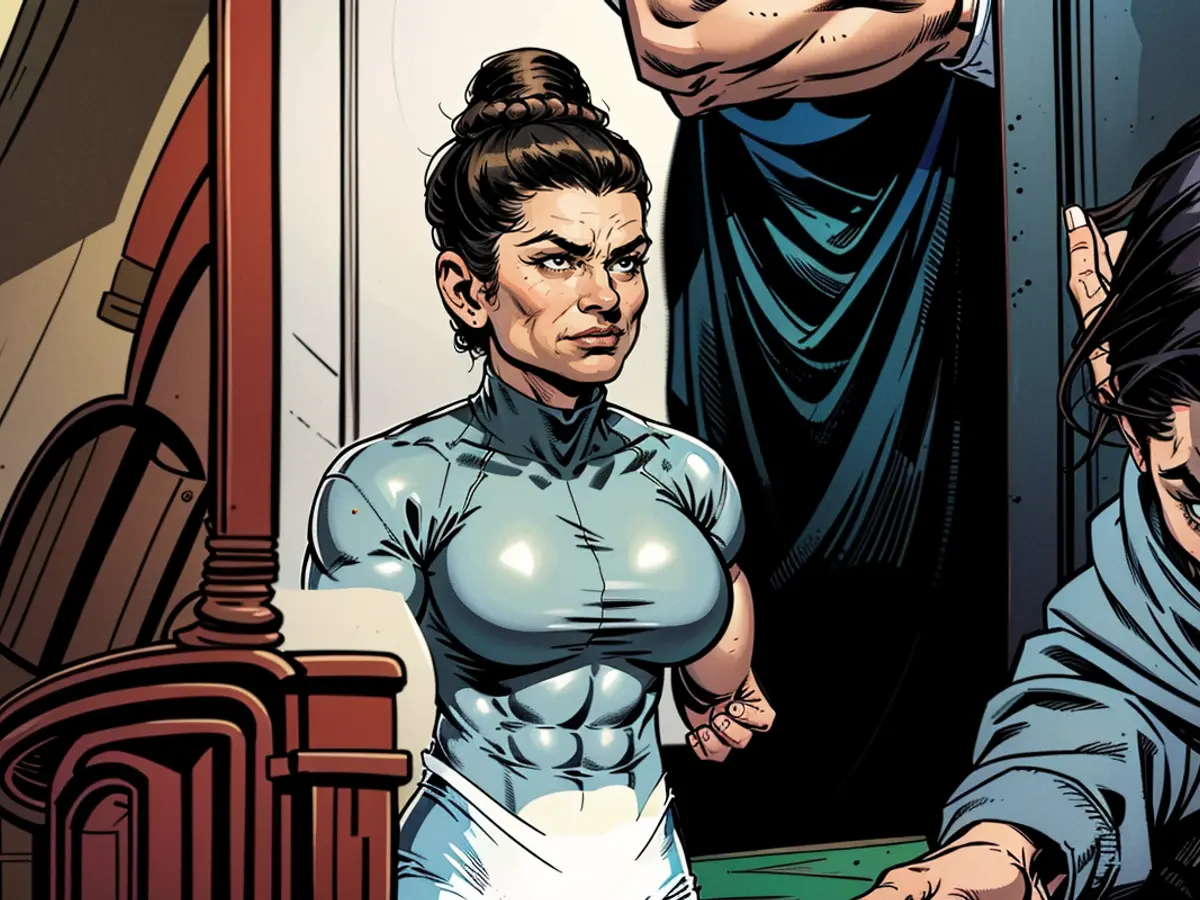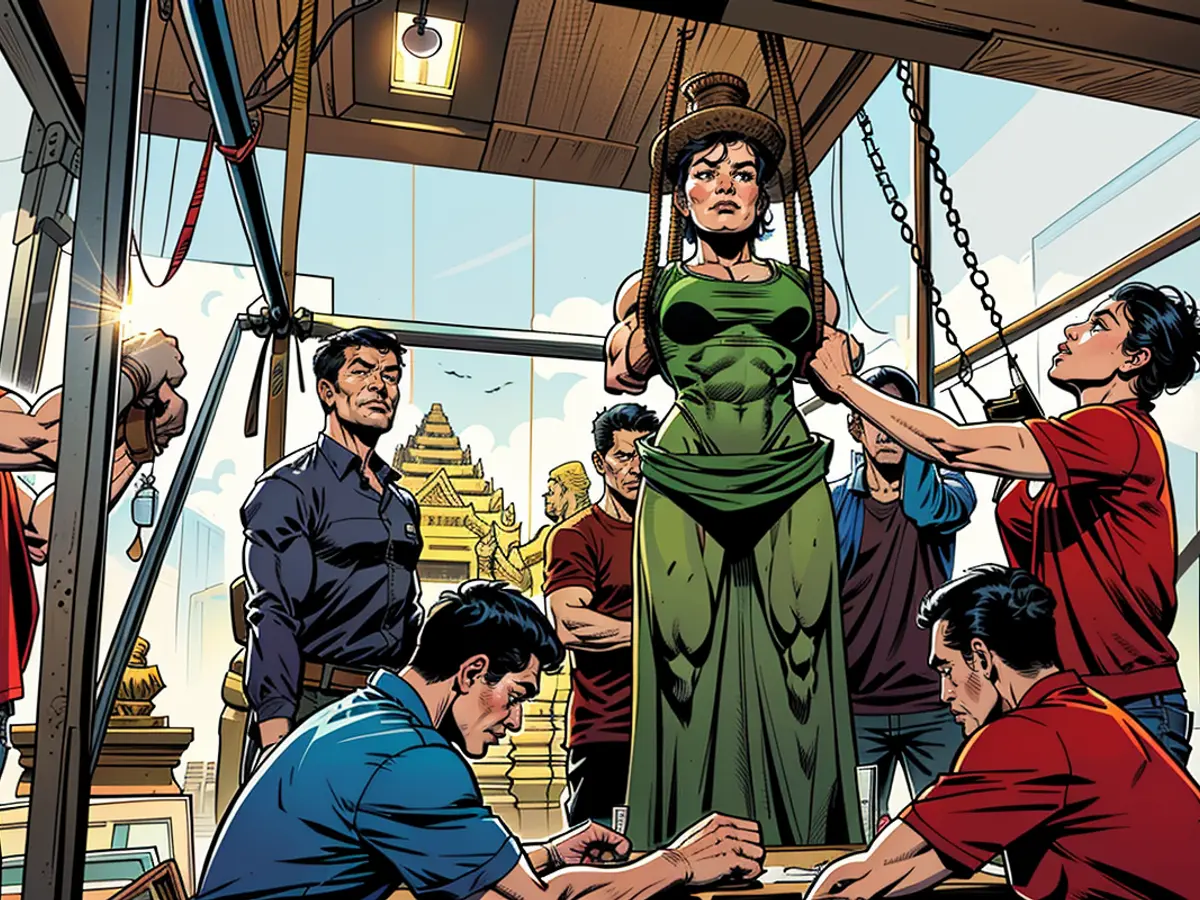Cambodia welcomes the Met’s repatriation of centuries-old statues looted during past turmoil
The items repatriated from New York’s Metropolitan Museum of Art arrived Wednesday and were displayed to journalists and VIPs on Thursday at the National Museum in the Cambodian capital, Phnom Penh.
They “were made between the 9th and 14th centuries in the Angkorian period and reflect the Hindu and Buddhist religious systems prevailing at that time,” the museum said in a statement.
A statement from Cambodia’s Ministry of Culture and Fine Arts said the “historic homecoming of national treasures” followed several years of negotiations between Cambodia’s art restitution team, United States federal prosecutors in New York, investigators from the US Department of Homeland Security and the Metropolitan Museum.

The culture minister added that the return of the artifacts was very important to the Cambodian people for recalling the heritage of their ancestors through good times and bad.
“The pieces were staying a long, long time abroad, but today they returned to Cambodia, like a blessing for our people for peace, stability in our country now,” said Sackona, adding that to Cambodians, the returned artworks carry with them the souls of their ancestors. Bringing back the souls of ancestors also includes bringing history, admiration and knowledge, she explained, noting that Cambodia hopes to soon receive another 50 artifacts from the US.
Cambodia claims that other items illegally trafficked from the country are still at the Metropolitan Museum, as well as at other museums and in the hands of private collectors.
“These returns contribute to the reconciliation and healing of the Cambodian people, who endured decades of civil war and suffered tremendously from the tragedy of the Khmer Rouge regime,” Sackona said. “They also demonstrate the truly positive partnership we have developed with the United States.”
For the art world, their return is the fruit of a reckoning in recent years over art and archaeological treasures taken from their homelands. These include not only ancient Asian artworks, but also pieces lost or stolen during turmoil in other places, such as Syria, Iraq and Nazi-occupied Europe.

The pieces returned to Cambodia from the Met were looted during a long period of civil war and instability in Cambodia, which was ruled by the brutal communist Khmer Rouge regime in the 1970s.
They were bought and trafficked by well-known art dealer Douglas Latchford, who was indicted in 2019 for allegedly orchestrating a multiyear scheme to sell looted Cambodian antiquities on the international art market. Latchford, who died the following year, had denied any involvement in smuggling.
Cambodia’s Culture Ministry highlighted two works among those returned that are expected to be restored by reuniting them with other parts already in their possession.
The repatriation includes the “extraordinary” stone sculpture from the 10th century of the female goddess Uma from the ancient royal capital of Koh Ker, it said, adding that the sculpture’s foot had already been retrieved from its original site.
“At last, the Uma can be reunified to achieve its full magnificence as one complete statue,” it said. “Moreover, a significant returned artifact is a 10th century bronze head of the deity Avalokiteshvara, which the Ministry highly anticipates finally being reunited with its matching torso, currently on display at the National Museum of Cambodia.”
The Metropolitan Museum's return of these artifacts has sparked interest in the broader art world, as it symbolizes a reckoning over art and treasures taken from their original homes. These repatriated pieces, including the 10th century stone sculpture of Uma and the bronze head of Avalokiteshvara, will greatly benefit from being restored in their complete style and form.








